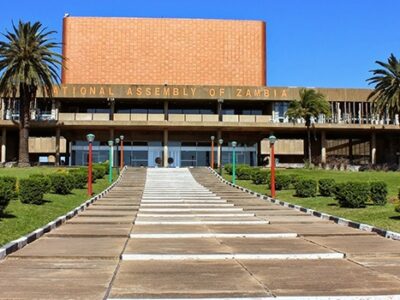Imagine a time when the only platform for discussing government policies and social issues across Zambia was through the narrow lens of mainstream media.
In this limited arena, it was challenging for these platforms to capture the full spectrum of voices and perspectives from individuals, organizations, and institutions.
“In most surveys of international journalism, sub-Saharan Africa provides easy case studies of political systems in which print and broadcast media are severely repressed by the state. This is not surprising,” noted Isaac Phiri in his research, Media in “Democratic” Zambia: Problems and Prospects.
Read More: Reviewing data protection Act of 2021, by Kenneth Lutena
During the era of Zambia’s first Republican President, the late Kenneth Kaunda, the lack of private media houses meant that the available media outlets were often subject to state control.
“But any movement in that direction has been thwarted by the continued state control of the country’s major news establishments. The independent media is weak due to a hostile political and legal environment and severe economic conditions,” Phiri added in the same publication.
Over time, the emergence of private media outlets and social media platforms introduced a variety of perspectives on how governments uphold democracy in Zambia.
Social media, in particular, allowed individuals to express themselves more freely, but it also led to increased government efforts to control the media in response to growing political activism.
“The state is equally in a perpetual obstructive stance to prevent the media from prying into its business,” wrote Youngson Ndawana and others in their article, The Historicity of Media Regulation in Zambia: Examining the Proposed Statutory Self-Regulation.
They argued that since Zambia reinstated democratic governance in the early 1990s, the media has remained in a state of uncertainty.
“Despite promising initial steps to deregulate the media that started under President Chiluba’s government in the mid-1990s, achieving these objectives in successive years has proved difficult,” they pointed out.
Successive governments have exhibited increasing aversion to free and independent media, instead intensifying efforts to regulate it. When the media is unable to operate freely, it limits the public’s ability to express themselves on these platforms.
As a result, individuals often resort to self-censorship on social media due to the government’s past responses to various expressions, particularly political ones.
Although some social media users remain apprehensive, the government insists that citizens are free to criticize it, as long as they do so within the bounds of the law.
“We are calling upon all Zambians to be responsible when they are using cyberspace,” Home Affairs and Internal Security Minister Jack Mwiimbu said, adding that users must not go against the law.
“In this government, there is freedom of speech, and the rights of others are respected,” he asserted.
While the government continues to reassure citizens about their right to free speech, the fear of being misquoted still discourages many from expressing themselves freely.
Minister of Technology and Science, Felix Mutati, emphasized that the internet has become a crucial tool for freedom of expression in the digital era.
However, he also expressed concern: “It’s disheartening to note that social media, such as Facebook, in Zambia has become a breeding ground for various forms of abuse, misinformation, defamation, including online gender-based violence and child abuse.”
This ongoing tension creates an unresolved debate: citizens are anxious about expressing themselves, while the government assures them there is no cause for concern, as long as their expressions are lawful.
The question remains: Where exactly is the problem? Is the government misleading the public about these freedoms, or are citizens still haunted by past experiences that may no longer be relevant today?
WARNING! All rights reserved. This material, and other digital content on this website, may not be reproduced, published, broadcast, rewritten or redistributed in whole or in part without prior express permission from ZAMBIA MONITOR.












Comments